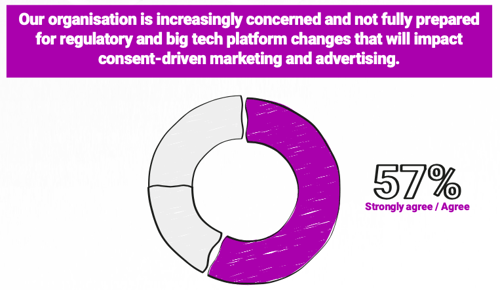After several previous delays, Google has announced that the deprecation of third party cookies from Chrome will not happen this year.
Google stated it will not complete the phase out in the second half of Q4 2024, and instead 'envision proceeding with third-party cookie deprecation starting early next year'.
To explain the decision, Google cites scrutiny from the UK Competition and Markets Authority (CMA), as well as industry challenges:
"We recognize that there are ongoing challenges related to reconciling divergent feedback from the industry, regulators and developers, and will continue to engage closely with the entire ecosystem. It's also critical that the CMA has sufficient time to review all evidence including results from industry tests, which the CMA has asked market participants to provide by the end of June. Given both of these significant considerations, we will not complete third-party cookie deprecation during the second half of Q4."
In theory, this delay provides more time for marketers and advertisers to prepare alternative solutions, as many are yet to do.
With Google Chrome taking a 65% share of the worldwide browser market, the removal of third-party cookies is a huge potential issue for marketers and advertisers.
This has driven the need for alternative solutions, which explains the rise of Data Clean Rooms and other cookie-less solutions.
Data Clean Rooms allow walled gardens like Facebook and Amazon to share aggregated rather than customer-level data with advertisers, while still exerting strict controls. It’s a solution which potentially allows advertisers to access data at scale once third party cookies have finally been phased out.
It's possible that some will see this delay as a further reason to adopt a 'wait and see' approach. With Google originally announcing the phasing out of cookies back in 2020, few would bet against further delays.
Indeed, research for our State of Data Privacy and Trust 2023 report, found that many marketers were not prepared for tech platform changes, with policies around cookies being one of the major concerns.

